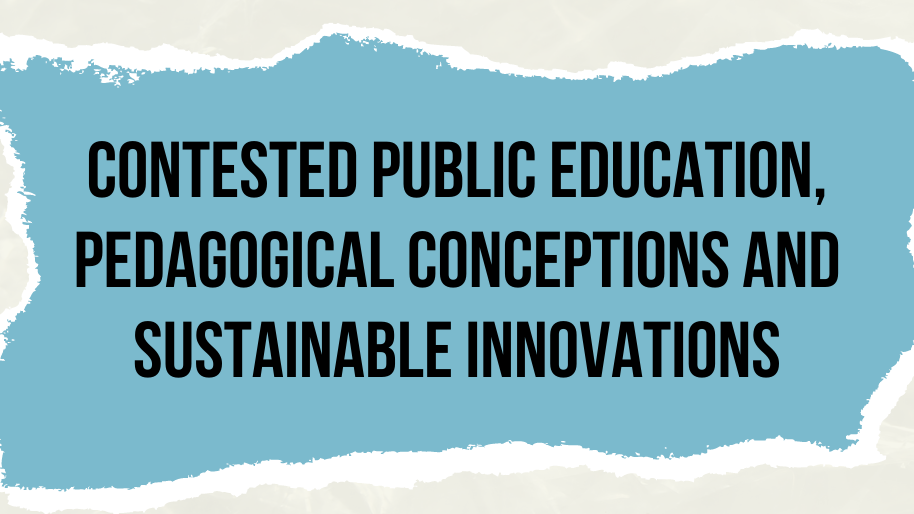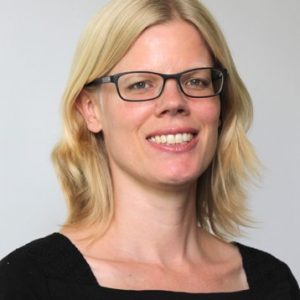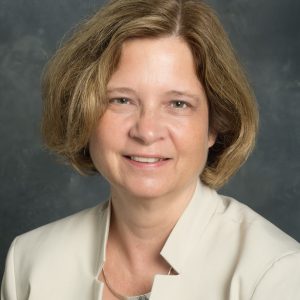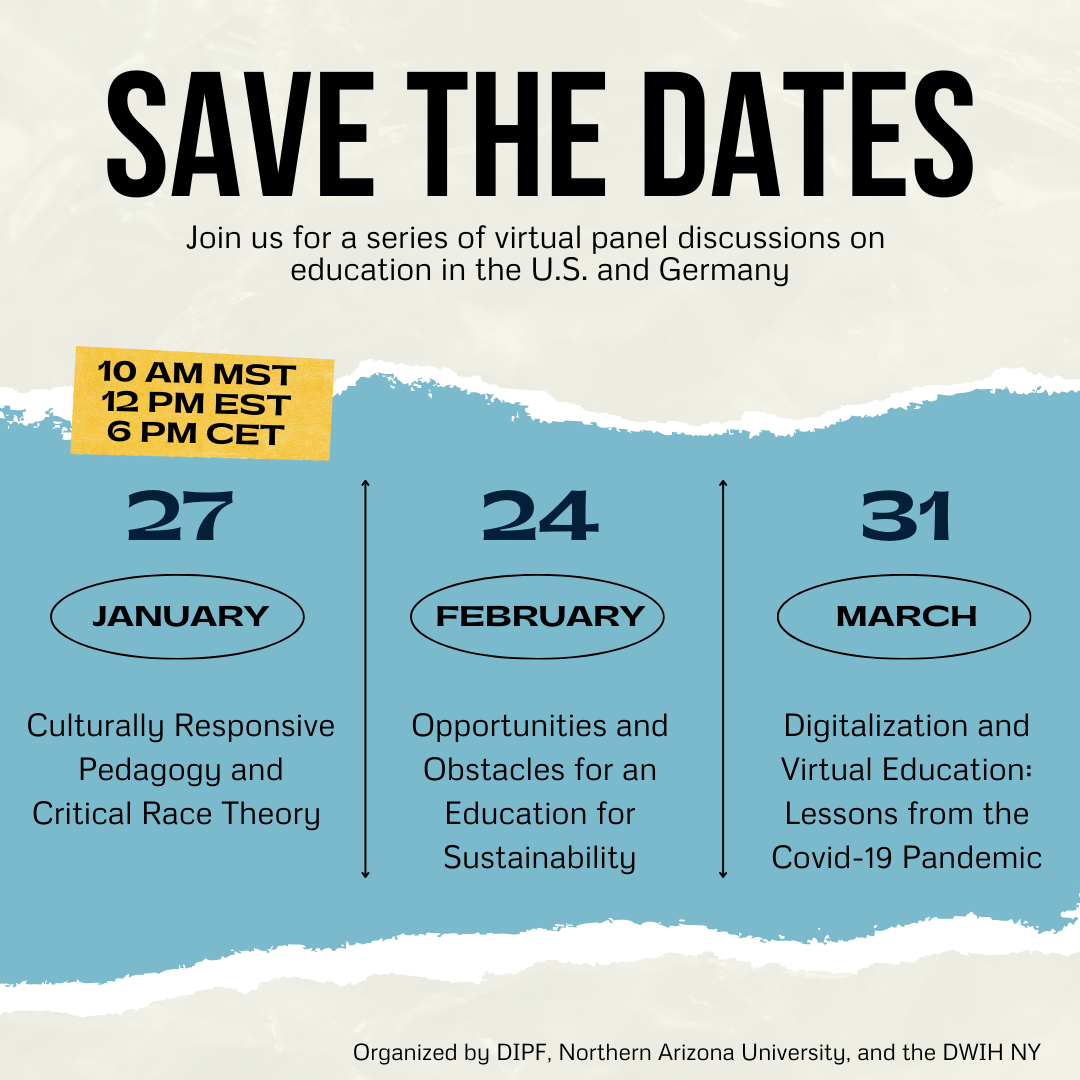Event Series on Education in the U.S. and Germany

Spearheaded by DIPF and Northern Arizona University, we’re starting 2022 with three panel discussions that focus on the tensions and challenges to public education and pedagogy in Germany and the United States.
In Germany and the U.S., control for public education is seen as the states’ responsibility within the respective nation states and, despite different developments, both countries are experiencing similar challenges to public education, including shifts toward digitization, highly diverse classroom settings, pressures from neoliberal policies, and debates about citizenship education in a world that is increasingly globalized, yet also facing growing nationalism. These challenges raise questions about the role of education within sustainable societies that are also threatened by recent crises of the Covid-19 pandemic and climate change.
Against this background, scholars from the U.S. and Germany will engage in a cross-national dialogue that considers these different developments and similarities across borders as well as variances in the approaches chosen to deal with the challenges. The panelists will refer to examples from education science, educational practice, and educational policy with all discussions framed by considerations of the role of pedagogy in each context. What kind of approaches are needed to better adapt schools to ideas of sustainability, digitalization and (inter)cultural sensitivity? The panels extend an earlier panel ‘Public Education at the Crossroads’ held at the DWIH NY in April 2018 and published in the European Educational Research Journal (EERJ) in spring 2021.
Organizers

Dr. Annika Wilmers is senior researcher at the DIPF | Leibniz Institute for Research and Information in Education. She is involved in projects in the field of migration, education in the digital world and the comparison of educational discourses, reforms and policies applying methodology from a transnational or international comparative perspective and review methodology. Dr. Wilmers is a staff member of “International Cooperation in Education - ice”, an office that provides advice and support to empirical educational institutions and individual educational researchers for establishing and improving international research initiatives. She is an experienced science manager and has worked for various higher education and research institutions. Since working for DIPF, she has concentrated on linking German educational research with international research communities. Most recently, she has been engaged in projects aimed at fostering research exchanges between North American and German scholars and coordinates several research networks.Dr. Annika Wilmers, DIPF | Leibniz Institute for Research and Information in Education

Dr. Rose Ylimaki is the Del and Jewell Lewis Endowed Chair in Leadership in the College of Education at Northern Arizona University. Dr. Ylimaki brings her knowledge of education, complex education ideologies, policies, and practices at international, national, and local (community and school) levels to administrative audiences. Dr. Ylimaki draws on education theory and philosophy to study leadership as a multi-level phenomenon, including classrooms, schools, districts, states, nation states, and increasingly, transnational levels. Dr. Ylimaki is a lead researcher in the International Successful School Principalship Project (ISSPP) as well as a cross-national project Forward to the Common Roots of Education: Pedagogical Terminologies in Different Languages. She developed a school development project called the Arizona Initiative for Leadership Development and Research (AZiLDR) that has served 88 high-needs schools across Arizona.Dr. Rose Ylimaki, Northern Arizona University
This series of events is free and open to anyone interested in education particularly educational scientists and practitioners; registration is required and will be made available on the specific event page. Click on the link(s) below to see details about each session and to register your attendance:
Part 1 on January 27th: Culturally Responsive Pedagogy and Critical Race Theory
Part 2 on February 24th: Opportunities and Obstacles: Education for Sustainability
Part 3 on March 31: Digitalization and Virtual Education: Lessons from the Covid-19 Pandemic

